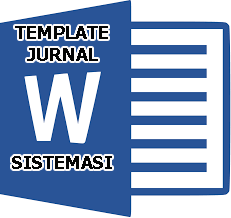Analysis of Mobile JKN Application Service Quality With E-GovQual Method and IPA
Abstract
Full Text:
PDFReferences
B. Prasetyo, F. Adnan, and R. A. Syahputra, “Evaluasi Kualitas Layanan Electronic Pendapatan Asli Daerah (E-PAD) Di Kabupaten Banyuwangi Menggunakan Metode E-GovQual dan Importance Performance Analysis,” J. Tekno Kompak, vol. 16, no. 1, p. 83, 2022, doi: 10.33365/jtk.v16i1.1857.
U. Muhammadiyah Jember, A. Zinda Nihriroh, D. Arifianto, and A. Maryam Zakiyyah, “Analisis Kepuasan Peserta Terhadap Aplikasi Mobile JKN Menggunakan Impotance Performance Analysis Analysis Of Participant Satisfaction With JKN Mobile Application Using Importance Performance Analysis,” J. Smart Teknol., vol. 4, no. 2, pp. 2774–1702, 2023, [Online]. Available: http://jurnal.unmuhjember.ac.id/index.php/JST.
D. B. Napitupulu, “Kualitas Layanan E-Government (Sebuah Analisa Di Pemkot X Dengan Pendekatan E-Govqual Dan Ipa),” J. Penelit. Pos dan Inform., vol. 6, no. 2, p. 153, 2016, doi: 10.17933/jppi.2016.060203.
X. Papadomichelaki and G. Mentzas, “E-GovQual: A multiple-item scale for assessing e-government service quality,” Gov. Inf. Q., vol. 29, no. 1, pp. 98–109, 2012, doi: 10.1016/j.giq.2011.08.011.
J. Martilla and J. James, “Importance-Performance Analysis: An easily applied technique for measuring attribute importance and performance can further the development of effective marketing programs.,” Journal of Marketing, vol. 41, no. 1. pp. 77–79, 1977.
R. A. Saputra, Suprapto, and A. Rachmadi, “Penilaian Kualitas Layanan E-Government Dengan Pendekatan Dimensi EGovqual dan Importance Performance Analysis (IPA) (Studi Kasus Pada Pemerintah Provinsi Nusa Tenggara Barat),” J. Pengemb. Teknol. Inf. dan Ilmu Komput., vol. 2, no. 5, pp. 1794–1802, 2018.
F. Septa, A. Yudhana, and A. Fadlil, “Analisis Kualitas Layanan E-Government dengan Pendekatan E-GovQual Modifikasi,” J. Sist. Inf. Bisnis, vol. 9, no. 2, p. 157, 2019, doi: 10.21456/vol9iss2pp157-164.
R. A. Nugroho, A. N. Imania, and A. A. Rahmawati, “Public Acceptance of Mobile Civic Service in Indonesia Using a Unified Model of E-Government Acceptance,” KnE Soc. Sci., vol. 2022, pp. 214–228, 2022, doi: 10.18502/kss.v7i5.10551.
H. Park and M. F. Samijadi, “Citizens Perception of E-Government in Korea: Importance-Performance Analysis on Users Satisfaction and Behavioral Intention,” J. Public Adm. Gov., vol. 11, no. 2, p. 357, 2021, doi: 10.5296/jpag.v11i2.18677.
D. Erlianti, “Kualitas Pelayanan Publik,” J. Adm. Publik dan Bisnis, vol. 1, no. 1, pp. 15–28, 2019, doi: 10.36917/japabis.v1i1.7.
F. Septa, A. Yudhana, and A. Fadlil, “Analisis Perbandingan Metode Regresi Linier Dan Importance Performance Analysis (IPA) Terhadap Kepuasan Pengguna Pada Layanan E-Government Menggunakan Metode WebQual Modifikasi,” J. Teknol. Inf. dan Ilmu Komput., vol. 7, no. 5, pp. 951–960, 2020, doi: 10.25126/jtiik.2020752294.
Gusti Agung Sri Guntari, “Kualitas Aplikasi Mobile Jkn Dalam Upaya Meningkatkan Akses Pelayanan Kesehatan Bagi Peserta Jkn Di Masa Pandemi Covid 19,” J. Kesehat. Masy. Gizi, vol. 5, no. 31 oktober 2022, pp. 1–7, 2022.
S. Bahri, A. Amri, and A. A. Siregar, “Analisis Kualitas Pelayanan Aplikasi Mobile Jkn Bpjs Kesehatan Menggunakan Metode Service Quality (Servqual),” Ind. Eng. J., vol. 11, no. 2, 2022, doi: 10.53912/iej.v11i2.837.
D. Cahyania, “Tinjauan Pembelian Atas Prosedur Peralatan Kantor Pada Pt Deltra Wijaya Konsultan,” Tinj. Pembelian Atas Prosedur Peralat. Kant. Pada Pt Deltra Wijaya Konsult., vol. 16, no. 1, pp. 1–23, 2018.
S. Syamsuryadin and C. F. S. Wahyuniati, “Tingkat Pengetahuan Pelatih Bola Voli Tentang Program Latihan Mental Di Kabupaten Sleman Yogyakarta,” Jorpres (Jurnal Olahraga Prestasi), vol. 13, no. 1, pp. 53–59, 2017, doi: 10.21831/jorpres.v13i1.12884.
G. Feoh and P. WidaGunawan, “Pengukuran Tingkat Kepuasan Pengguna Situs Web Pemerintah (E-Government) Kabupaten Badung,” J. Teknol. Inf. dan Komput., vol. 2, no. 2, pp. 237–244, 2016, doi: 10.36002/jutik.v2i2.149.
Andreas Wijaya, “Metode Penelitian Menggunakan Smart Pls 03. Yogyakarta: Innosain. Anggara, S.,” 2019, p. 10.
A. Saryoko, H. Hendri, and S. H. Sukmana, “Pengukuran Layanan Pada Aplikasi Mobile JKN Menggunakan Metode Servqual,” Paradig. - J. Komput. dan Inform., vol. 21, no. 2, pp. 157–166, 2019, doi: 10.31294/p.v21i2.5412.
D. F. Pangestu and S. Wahyu, “Penerapan Model E-Govqual dan IPA dalam Mengevaluasi Kualitas Layanan Sistem Perizinan Online Implementation of E-Govqual and IPA Models in Evaluating the Quality of Online Licensing System Services,” vol. 12, no. September, pp. 888–899, 2023.
I. Larasati, A. N. Yusril, and P. Al Zukri, “Systematic Literature Review Analisis Metode Agile Dalam Pengembangan Aplikasi Mobile,” Sistemasi, vol. 10, no. 2, p. 369, 2021, doi: 10.32520/stmsi.v10i2.1237.
DOI: https://doi.org/10.32520/stmsi.v13i6.4537
Article Metrics
Abstract view : 1061 timesPDF - 273 times
Refbacks
- There are currently no refbacks.

This work is licensed under a Creative Commons Attribution-ShareAlike 4.0 International License.









